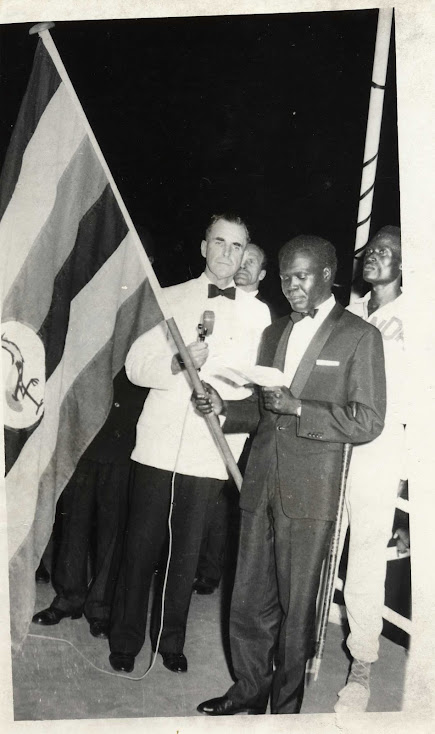Obote’s Three Opponents: The Root of Uganda’s Development Challenges
 |
| Dr Obote recieving the instruments of power on the indepence day in 1962 |
Decades ago, Uganda’s former Prime Minister Milton Obote identified three major challenges facing the country: poverty, ignorance, and disease. These “Three Opponents” remain pressing issues today, intertwined and persistent in their impact on Uganda’s development. Addressing these challenges requires targeted strategies to empower the Ugandan people and create sustainable progress.
Tackling Poverty
Poverty feeds ignorance and disease, making it the root issue to confront. Obote emphasized the power of collective action. In rural areas, cooperatives can help farmers pool resources and increase productivity. These organizations offer a way for small-scale producers to collectively access markets, credit, and better prices. Similarly, urban workers benefit from trade unions, which advocate for fair wages and improved working conditions. Both cooperatives and trade unions operate on the principle of unity: “Together we are strong.” Strengthening these institutions is a key step toward eradicating poverty.
Combating Ignorance
Education is critical to breaking the cycle of poverty. However, quality education requires significant investment. Obote believed in the importance of free education to provide equal opportunities for all Ugandans. A well-educated population drives economic diversification, reduces unemployment, and fosters innovation. Historically, countries that invested in universal education experienced rapid socio-economic development. For Uganda, prioritizing accessible education could lay the foundation for sustained national growth.
Fighting Disease
Health is another battleground where poverty exerts its influence. Without access to affordable healthcare, many Ugandans suffer preventable illnesses. Obote advocated for long-term solutions such as free or subsidized medical services and the use of affordable local remedies. For example, growing medicinal plants like artemisia to combat malaria could reduce dependency on expensive pharmaceutical imports. Public health investments are not just altruistic; they improve workforce productivity and economic efficiency.
A Vision of Socialism
Obote’s ultimate goal was the establishment of socialism, a system where resources are equitably shared, and the well-being of the masses takes precedence over profits. The “Three Opponents” can be viewed as practical, transitional objectives—concrete steps toward this broader vision of a fair and thriving Uganda.
Conclusion
Obote’s framework remains relevant, offering Uganda a path forward to address its deepest challenges. By investing in collective action, universal education, and accessible healthcare, Uganda can defeat poverty, ignorance, and disease. Honoring Obote’s vision means striving for a nation where every citizen has the opportunity to thrive, paving the way for a renewed Uganda.


Comments
Post a Comment